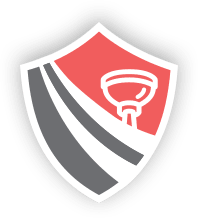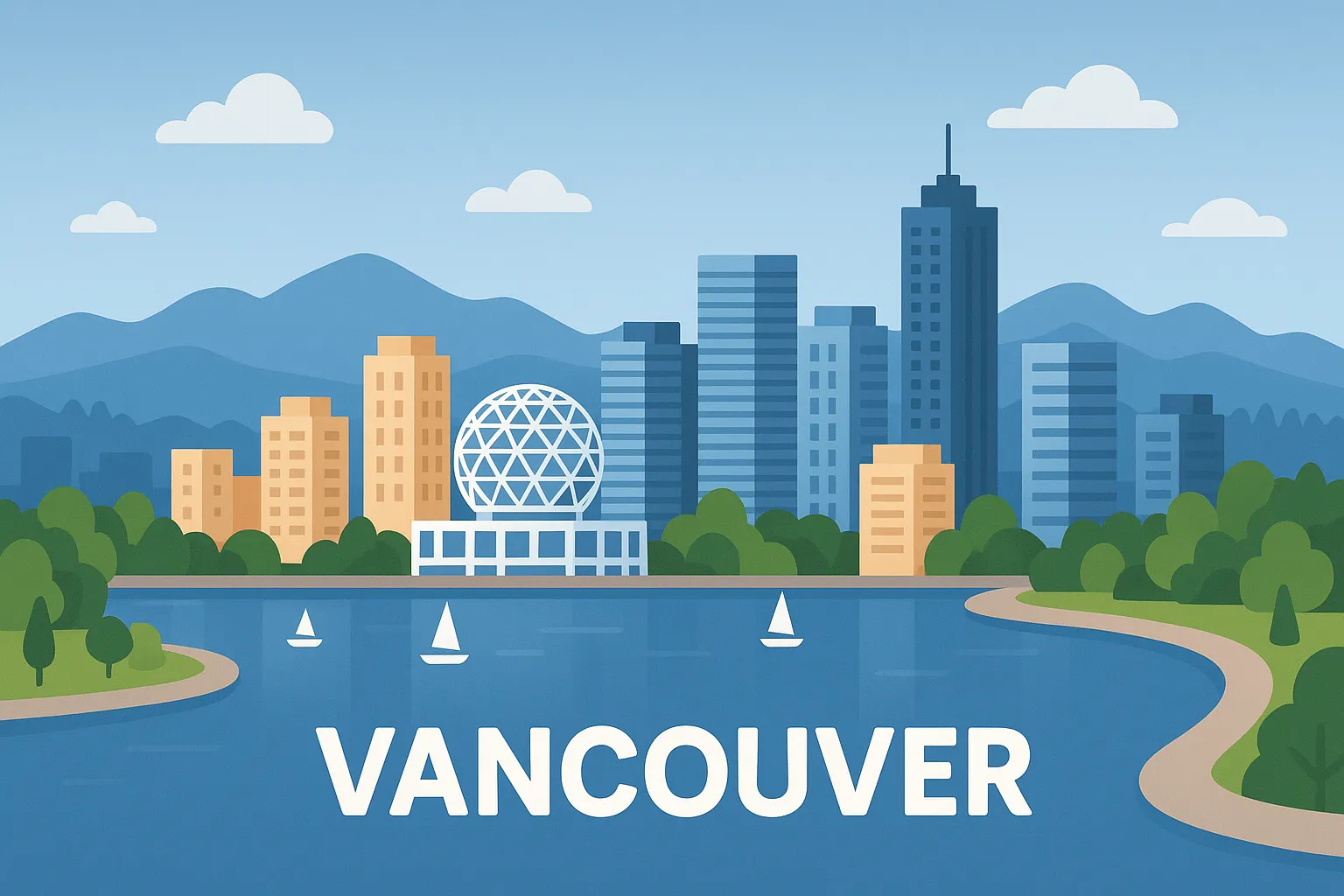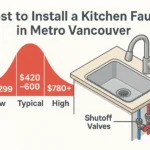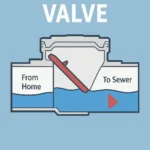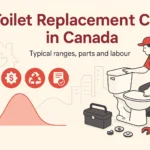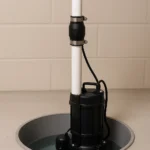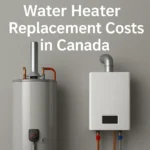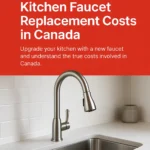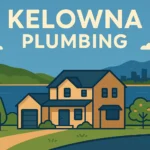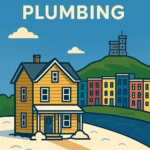Introduction
Vancouver is Canada’s third-largest metropolitan area, home to more than 660,000 people in the city proper and over 2.6 million across Metro Vancouver. Nestled between the mountains and the Pacific Ocean, the city’s geography creates unique conditions for plumbing systems. Residents enjoy some of the cleanest, softest water in the world, but heavy rainfall, aging housing stock, and dense multi-family living all present challenges. This guide explores Vancouver’s water, plumbing issues, seasonal considerations, costs, and local regulations—plus practical tips to keep your home dry and your system running smoothly.
Water Source, Quality & Hardness
- Where the water comes from: Vancouver’s drinking water originates in the protected Capilano, Seymour, and Coquitlam watersheds. These mountain reservoirs provide naturally clean water, treated and tested multiple times before reaching taps.
- Water quality: The City of Vancouver monitors water for chlorine, turbidity, temperature, and bacteria at dozens of sampling points daily (City of Vancouver).
- Water hardness: Vancouver water is extremely soft—about 0.3 grains per gallon compared to the Canadian average of 10. This means:
- ✅ Minimal scale buildup in appliances and fixtures
- ✅ Better efficiency for water heaters and boilers
- ⚠️ Slightly higher risk of corrosion in certain metals if not maintained
- Water pressure: Because of Vancouver’s steep terrain, water pressure is managed by both gravity and city regulators. Homes in low-lying areas (False Creek flats, parts of East Van) often see higher pressure, while hillside homes in Dunbar or Point Grey may require pressure-reducing valves.
Common Plumbing Issues in Vancouver
- Leaky condo legacy
Buildings constructed between the 1980s and early 2000s are notorious for poor envelope sealing. Water intrusion led to widespread “leaky condo” failures. Even today, strata councils must manage envelope repairs and plumbing replacements caused by hidden moisture damage. - Stormwater overload
Vancouver receives ~1,200 mm of rain annually—nearly double the Canadian average. Heavy downpours overwhelm drains, leading to flooded basements, backed-up sewer lines, and sump pump failures. - Cold snap pipe bursts
While winters are mild, Arctic outflow events push temperatures below –10 °C. In December 2022, hundreds of homeowners reported burst pipes after exposed hose bibs and crawlspace lines froze. - Aging pipes
Many older homes still contain galvanized steel or polybutylene pipes. These materials corrode, restrict flow, and are prone to leaks. Renovations often require full repiping to copper or PEX. - Backflow concerns
With widespread irrigation, fire sprinklers, and boilers, Vancouver enforces strict backflow prevention rules. Devices must be installed and tested regularly under the City’s Cross-Connection Control Program.
Seasonal Considerations
- Fall/Winter: Heavy rain means clean gutters, functioning sump pumps, and backwater valves are critical. Consider a plumber inspection before the rainy season.
- Spring: Snowmelt in nearby mountains increases runoff. Check foundation drains and perimeter tiles for blockages.
- Summer: Drier weather brings Metro Vancouver watering restrictions. Install efficient irrigation with drip lines and shutoff valves.
- Climate change: Atmospheric rivers (like in November 2021) are becoming more intense, while snowpack levels decline. Future plumbing resilience depends on flood prevention and water conservation upgrades.
Housing Stock & Plumbing Materials
- Single-family homes: Kitsilano, Kerrisdale, and East Vancouver have older homes where galvanized or copper pipes may be nearing end of life.
- Condos/apartments: Over 60% of Vancouver residents live in multi-family housing. Plumbing failures in high-rises can cause thousands of dollars in water damage across multiple units.
- New builds: Most new construction uses PEX and modern fixtures, but still requires proper backflow and drainage systems.
Costs of Plumbing in Vancouver
Plumbing services in Vancouver are comparable to other major Canadian cities. Most companies charge a minimum service call of $300 before tax, which usually covers the first hour of work or an initial on-site inspection.
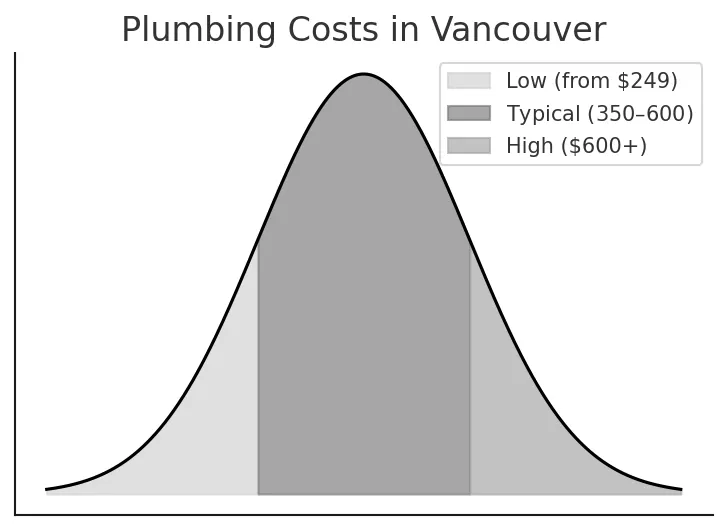
| Service | Low | Typical | High |
|---|---|---|---|
| Unclog a drain | $300 | $400 | $700+ |
| Replace a faucet | $300 | $450 | $850+ |
| Hot water tank replacement | $1,400 | $2,000 | $3,500+ |
| Emergency after-hours call | $450 | $700 | $1,200+ |
⚠️ Estimates disclaimer: Prices exclude after-hours premiums, permits, and materials. Always confirm with your plumber.
Local Regulations & Permits
- Permits: Most new installations and major replacements require a plumbing permit. See City of Vancouver plumbing permits.
- Backflow bylaw: Properties with irrigation or fire sprinklers must install and test backflow devices annually.
- Water restrictions: Outdoor watering is limited to set days/times in summer. Violations may result in fines.
- 311 contact: For city water or permit questions, call 3-1-1 (inside Vancouver) or 604-873-7000 outside. Details at City Contact Centre.
Case Study: East Vancouver Flooding
During the 2021 atmospheric river, dozens of East Vancouver homeowners reported sewer backups when storm drains were overwhelmed. One family avoided damage thanks to a plumber-installed backwater valve a year earlier. Their $600 preventive investment saved them tens of thousands in flood remediation.
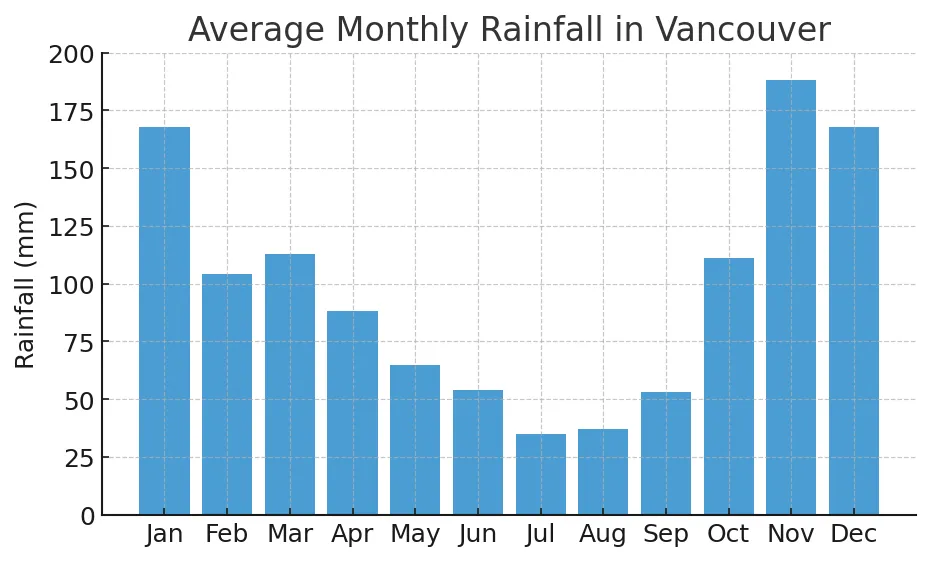
FAQs (Vancouver-specific)
Is Vancouver tap water safe to drink?
Yes. Vancouver water is drawn from mountain reservoirs, treated, and tested daily.
Do I need a permit to replace plumbing fixtures?
Replacing like-for-like fixtures usually does not, but new installations, drainage changes, or backflow work require permits. See plumbing permits.
How do I protect my basement from flooding?
Install a backwater valve, keep drains clear, and test sump pumps before the rainy season.
What is the average cost of a plumber in Vancouver?
Expect a minimum $300 call-out fee, with most jobs ranging $400–$600.
Why do so many Vancouver condos have plumbing problems?
High-rise plumbing is complex. Combined with “leaky condo” envelope issues from the 1980s–2000s, many buildings now face costly repairs.
Do I need to winterize plumbing in Vancouver?
Yes. Even though winters are mild, cold snaps can freeze outdoor taps and crawlspace pipes. Always shut off and drain hose bibs in fall.
Tips for Vancouver Homeowners
- Install water leak detectors in condos or multi-unit homes.
- Test and maintain backflow devices annually.
- Upgrade galvanized or polybutylene pipes if present.
- Insulate exterior pipes and hose bibs before winter.
- Use efficient irrigation to comply with water restrictions.
Conclusion
Vancouver homeowners benefit from some of the softest, cleanest water in Canada, but the city’s heavy rainfall, dense housing, and aging infrastructure create real plumbing challenges. Preventive maintenance—especially around drainage and backflow—is the best way to avoid costly emergencies.
👉 Book a licensed plumber in Vancouver today at unclogit.com or call 604-496-1661.
